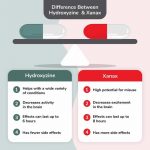
Contents
Is 32 oz of Water a Day Enough? Dehydration Risks
Drinking 32 oz of water a day is not sufficient for proper hydration. If you drink only 32 oz of water a day, you are consuming only half the recommended daily amount needed for adequate hydration, leading to dehydration and potential health issues.
The National Academies of Science, Engineering, and Medicine recommend the following daily water intake:
- 91 oz (11 cups) for women
- 125 oz (15 cups) for men
Causes of dehydration
Water is vital for the functioning of cells and organs. It plays essential roles in transporting nutrients and oxygen, regulating heart rate and blood pressure, maintaining body temperature, lubricating joints, protecting organs and tissues, producing saliva, and removing waste and pollutants.
The primary cause of dehydration is insufficient water intake. Diarrhea and vomiting are common causes of dehydration in children, while medical conditions contributing to low fluid intake or loss commonly cause dehydration in the elderly. Dehydration can be particularly dangerous for infants and the elderly.
Mild to moderate dehydration can be reversed by increasing water consumption. Severe dehydration may require medical attention and intravenous fluid administration.
Signs of inadequate water intake
Dehydration severity depends on the amount of weight lost from fluids. Thirst and dark urine are initial indicators that the body needs increased water intake and reduced water loss.
However, thirst is not always a reliable early indicator, especially for older adults who may lose their sense of thirst due to chronic dehydration. It is important to drink more water during hot weather or illness.
Common dehydration symptoms include:
Infants and young children
- Dry tongue
- Dry skin
- Irritability
- Dull eyes and cheeks
- No wet diapers for more than 3 hours
- No tears when crying
Adults
- Decreased urine frequency
- Dark yellow urine
- Fatigue
- Confusion
- Dizziness
- Headaches
- Dry skin
- Constipation
- Irritability
Severe dehydration can be life-threatening, with symptoms including:
- Excessive thirst
- Reduced blood pressure
- Fever
- Increased heartbeat
- No urination for more than 8 hours
- Sunken eyes
- Dry skin without sweat
- No tears
- Disorientation or confusion
Question
12 health risks of dehydration
- Muscle cramps: Inadequate fluid intake can cause muscle cramps due to hypersensitivity and involuntary muscular contractions.
- Depression: Dehydration reduces the brain’s energy supply, leading to lethargy, exhaustion, and depression.
- Seizures: Imbalances in electrolytes can result in involuntary muscle contractions and, in severe cases, loss of consciousness.
- High blood pressure: Frequent dehydration increases the risk of hypertension due to the body’s response to dehydrated areas by constricting blood arteries.
- Constipation: Insufficient water intake leads to water extraction from the waste in the intestine, resulting in hardened stools and constipation.
- Uremia: Insufficient fluid intake impairs kidney function, leading to waste accumulation in the body, causing swelling and other uremia symptoms.
- Kidney stones: Concentrated urine due to dehydration can result in crystal formation and the development of kidney stones.
- Kidney disease: Reduced water intake triggers a response to restrict urine production, leading to high blood pressure and potential kidney damage.
- Gallstones: Dehydration causes bile duct constriction, increasing the risk of gallstones.
- Joint problems: Inadequate fluid intake leads to joint deterioration over time as cartilage surfaces rub against each other without proper lubrication and nutrients for repair.
- Heatstroke: Failure to consume enough fluids during physical activity and intense perspiration can result in heat-related conditions ranging from cramps to life-threatening heatstroke.
- Death: Severe dehydration can be life-threatening.
Diagnosing dehydration
Your doctor will evaluate your physical symptoms to determine if dehydration is present. Symptoms such as a fast heart rate or low blood pressure can indicate dehydration.
To confirm the diagnosis and assess the degree of dehydration, tests such as blood tests and urine analysis may be conducted to evaluate electrolyte levels, kidney function, and signs of a bladder infection.
Treating dehydration
Treatment for dehydration depends on the severity of the condition.
Mild or moderate dehydration can be managed by moving to a cool or shady location and drinking fluids, including water or electrolyte-containing sports drinks. Tips for treating mild dehydration include:
- Drink small amounts of fluid frequently rather than large amounts at once to avoid vomiting.
- Carry a water bottle and sip throughout the day.
- Suck on ice chips or popsicles if drinking or eating is challenging.
- Keep ice nearby to reduce the need for frequent movement.
- Moisturize cracked lips.
- If experiencing diarrhea, consume fluids high in electrolytes like oral rehydration solutions.
Seek immediate medical assistance if you faint, lose consciousness, or experience severe symptoms such as heart palpitations or fever. Critically dehydrated individuals may require intravenous fluid administration.


